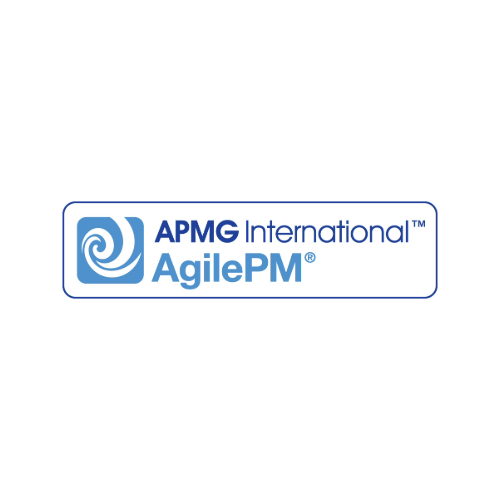
Organisations are looking to adopt a more agile project approach in the delivery of their projects. Agile projects are characterised by highly self-empowered teams delivering products incrementally, focusing on the early delivery of tangible benefits to the business. Unlike more traditional approaches, agile projects fix time, cost and quality at the early phases of the project and manage contingency by developing a clear view of priorities in collaboration with the business.
Developed by the Agile Business Consortium and accredited by APMG International, AgilePM® is built upon eight principles. It combines flexible planning, robust prioritisation, and collaborative practices to ensure a rewarding, business-centric focus among all project participants and stakeholders. Elevate your project management skills with AgilePM® and make an impact on your organization's success.
The Netcampus group is an AgilePM® authorized training organization.
Certifications:
Agile Foundation Certificate
The Agile Project Management Foundation course provides guidance about how to flex and deliver projects rapidly to meet your customer's needs. The digital guide is included in the course.
Here is what you learn:
We offer affordable and engaging courses to unlock potential. Unlock Your Potential with Affordable and Engaging Courses at Netcampus
Netcampus Group is an authorized APMG AgilePM® training provider, offering comprehensive Agile Project Management courses developed by the Agile Business Consortium and accredited by APMG International. Our programs include the AgilePM® Foundation and AgilePM® Practitioner certifications, as well as combined courses and foundational workshops to build deep understanding of agile lifecycles, MoSCoW prioritisation, iterative delivery, timeboxing, stakeholder engagement, and more. AgilePM® equips professionals to manage agile projects where time, cost, and quality are fixed, and business value is delivered early. Ideal for project managers, business analysts, and team leads in South Africa and beyond looking to drive high-performance, flexible project delivery.

Make yourself a more valuable member of the team by learning how to help or...

The course consists of two qualification levels: Foundation and Practitione...

In this course conducted by certified project practitioners, candidates wil...

Make yourself a more valuable member of the team by learning how to help or...

The course consists of two qualification levels: Foundation and Practitione...

AgileBA guidance, training and certification provides Business Analysts wit...
Subscribe to our newsletter and never miss out on industry trends, exclusive content, and special offers. Join our community today!